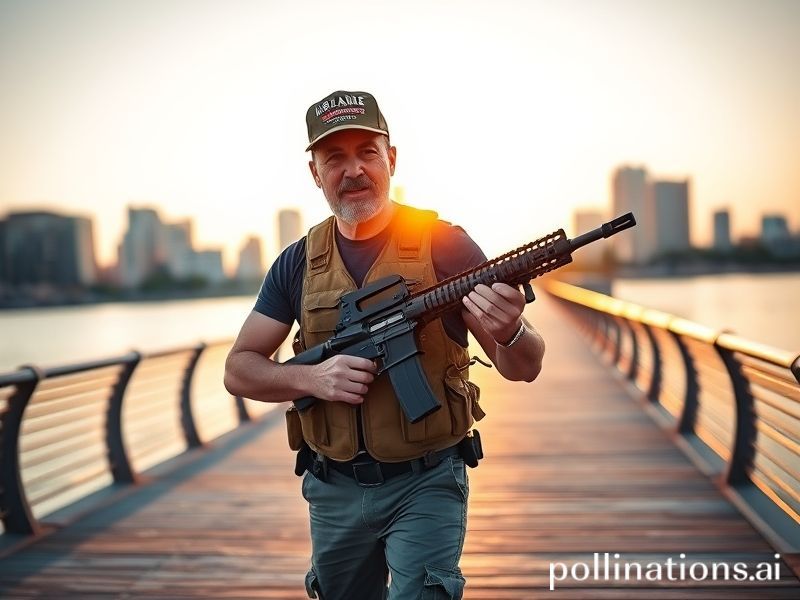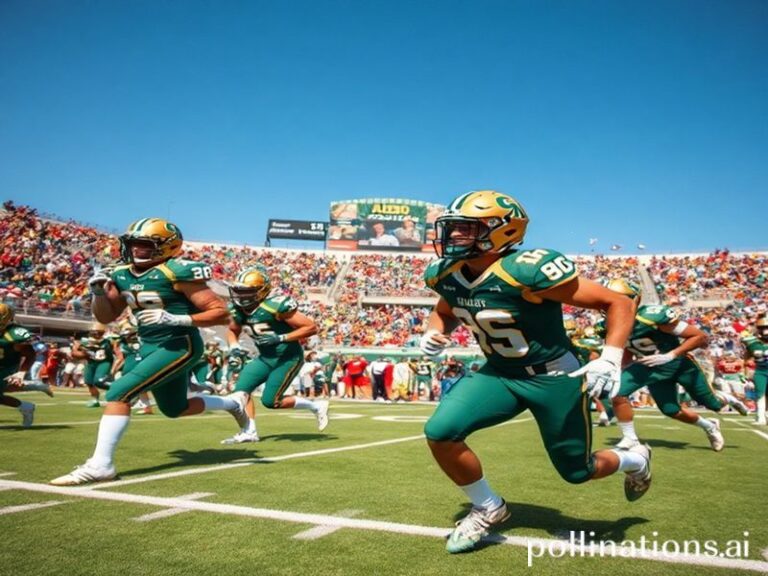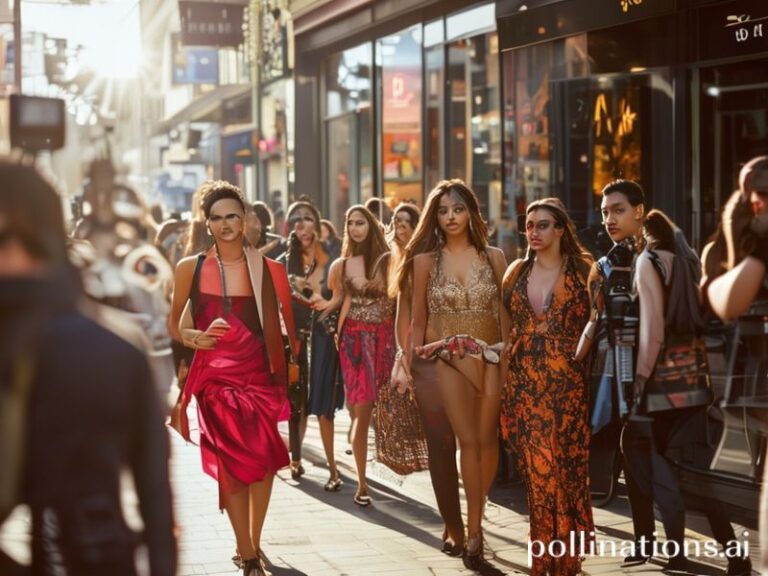Florida’s Open-Carry Law Goes Global: How the Sunshine State Became the World’s Most Loaded Runway
Florida’s New Fashion Week: Open-Carry Chic Goes Global
Word Count: 603
From the air-conditioned corridors of Davos to the humid queue for a Cuban sandwich in Little Havana, the Sunshine State’s freshly inked open-carry law is causing more double-takes than an alligator on a Jet Ski. Effective July 1, Floridians may now sport their favorite semi-automatic the way Milanese display pocket squares—no permit, no training, just pure, unfiltered accessorizing. To the rest of the planet, it looks less like legislation and more like the season finale of a reality show titled “Civilization: The Later Seasons.”
Europe, nursing its espresso and its World War flashbacks, responded with the diplomatic equivalent of a raised eyebrow. In Paris, where carrying a baguette without a permit is still frowned upon, Le Monde ran the headline “Floride: liberté, égalité, Ruger.” Meanwhile, Germany’s Bundestag briefly debated whether to issue travel advisories warning citizens that Florida now ranks between “hurricane” and “Disney ticket prices” on the danger scale. The Swiss, never ones to miss a market opportunity, have already begun exporting designer holsters in Pantone colors that match Floridian sunsets. Because nothing says neutrality like a tastefully color-coded Glock.
Asia watched the livestream with the same detached curiosity usually reserved for American pizza toppings. In Tokyo, where even kitchen knives must be registered, NHK produced a primetime explainer titled “Why Americans Wear War.” South Korea’s K-pop agencies, ever alert to merchandising angles, reportedly studied whether bulletproof schoolbags could be rebranded as luxury backpacks. Over in Beijing, state media used the Florida law as Exhibit A in its nightly PowerPoint on “Western Decadence,” conveniently omitting that China’s own civilian firearm ownership remains statistically lower than the number of pandas who can play the saxophone.
Latin America, accustomed to being lectured on violence, is enjoying the role reversal like a telenovela plot twist. Mexican President Claudia Sheinbaum quipped that at least her cartels have the decency to hide their guns, prompting a flurry of memes comparing sicarios to fashionably understated influencers. Colombia offered to host the first “Trans-Continental Gun Buyback & Mojito Summit,” while Venezuela’s Maduro—never one to miss a chance at irony—suggested Florida apply for OPEC membership on the grounds that it clearly has too much oil in its grip.
Africa, busy solving actual problems, emitted a collective sigh that rustled the acacia trees. Kenyan Twitter crowned Florida “the 55th state of Denial.” South Africa, still scarred by its own flirtation with open-carry during apartheid’s death rattle, sent a terse diplomatic cable reading simply, “Been there. Regrets attached.” Nigeria’s Nollywood producers have already greenlit “Guns of Miami Vice 2: This Time It’s Personal Finance,” a romantic comedy where a bachelorette must choose between love and an AR-15 dowry.
The Middle East, region of eternal understatement, offered the driest take. Israel’s foreign ministry issued a one-line statement—“Welcome to the neighborhood”—while Saudi influencers posted TikToks rating Florida gun belts the way they once reviewed Dubai brunches. Qatar discreetly inquired whether the next Super Bowl could feature a halftime show performed entirely of ricocheting shell casings; aesthetic synergy, after all.
What does it all mean? In a world already overheating—literally and figuratively—Florida’s decision to let thermostats and tempers compete in an open market is less about crime statistics than about narrative control. Every culture weaponizes symbols; the West just happens to prefer its symbols made of polymer and stamped “Made in Austria.” While other nations export pop music or microchips, America exports the spectacle of itself, holstered.
And so the planet watches, half horrified, half binge-watching. Because deep down everyone knows the final customer for Florida’s new couture isn’t the Cuban-American grandfather in Hialeah—it’s the algorithm, hungry for content. The guns aren’t merely carried; they’re streamed, clipped, monetized, subtitled in forty languages and served between ads for VPNs and life insurance. Somewhere in the Kremlin, a strategist updates a slide titled “Destabilization ROI—Sunshine Edition.” Somewhere in Silicon Valley, a founder pitches “TriggerTok.” Somewhere on the International Space Station, astronauts look down at the peninsula glowing like a loaded cigarette and remind each other that borders are imaginary but headlines are eternal.
In the end, Florida isn’t just allowing open carry; it’s beta-testing the future of attention economics, one magazine at a time. The rest of us? We’re all just extras in the background, trying not to blink.







